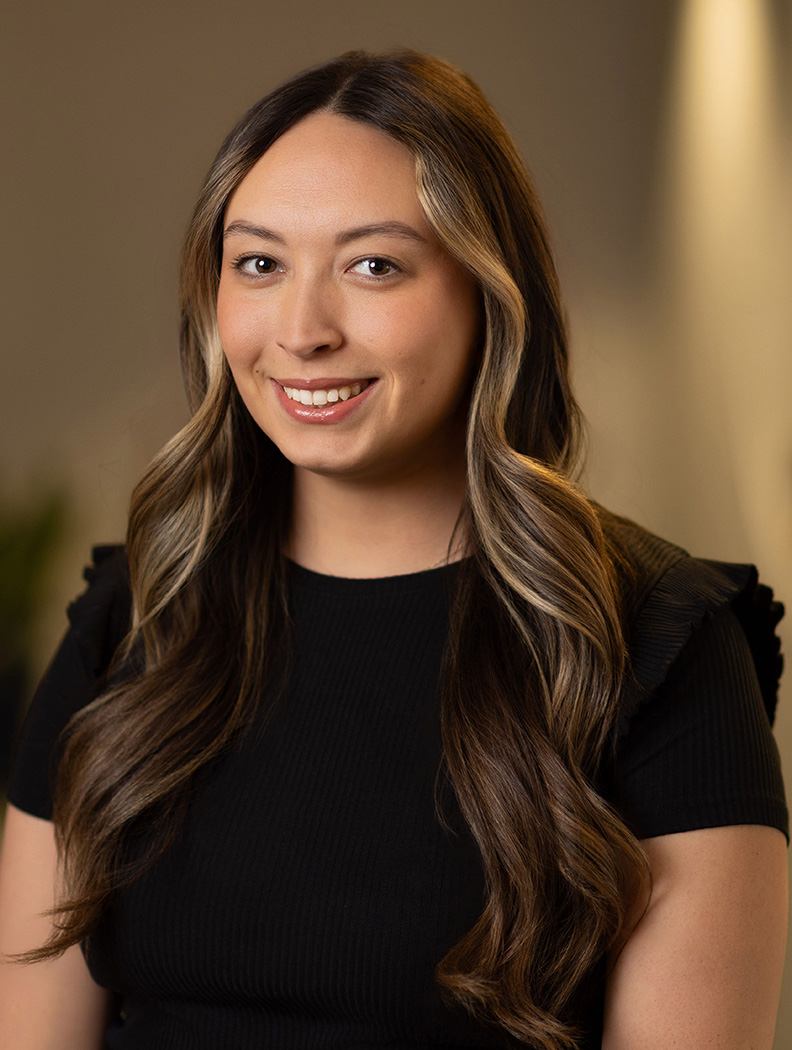For Any Cancer Diagnosis
- Q.
How do I find financial help for a friend whose daughter has cancer (age 5)?
A.Families with children undergoing cancer treatment often face overwhelming financial costs. In addition to the medical costs, many parents find that their child’s intense treatment schedule can lead to loss of income and other unexpected expenses such as transportation and lodging.
There are a number of national organizations that can provide limited financial assistance for treatment-related expenses, including CancerCare and the National Children’s Cancer Society. You may want to recommend that your friend contact these organizations directly to find out if their family is eligible for assistance. You may also refer them to our fact sheet, Financial Assistance for Children and Teenagers.
It can be challenging to find help with daily expenses, such as rent, utilities and food. There may be local organizations that provide assistance for families facing serious childhood illnesses. The best way to learn about these local organizations is often the social worker at the child’s cancer treatment center. You may want to recommend that your friend find out more about local resources by dialing 211. This number will connect to the local United Way, which can link families to community programs.
Your friend is fortunate to have your support, as cancer treatment can place significant stress on a family. One of the easiest ways that you can help your friend and reduce the stress on this family is to provide practical support. You may want to ask this person directly if there are other ways you can help their family, such as offering to provide child care if there are siblings or running an errand. This type of practical assistance from a friend can provide a measure of relief to caregivers.
A cancer diagnosis has a profound effect on families, and a childhood diagnosis comes with its own unique challenges. It can be difficult to talk to young children about cancer, and to know how to help them communicate their feelings and fears. Your friend may want to check out CancerCare’s fact sheet Supporting a Child With Cancer.
CancerCare’s professional oncology social workers can also help in locating additional financial assistance and provide support and resources around caregiving for a child with cancer (800-813-4673).
- Q.
Can you advise on the best method of obtaining educational support for my daughter who has fallen behind at school and needs more specialist support to catch up with her peers? She is seven, and was originally diagnosed with cancer at age four.
A.It’s common for children who have been diagnosed with cancer at a young age to need specialized educational support during and/or after their treatment. This can be due to many factors including frequent absences from school due to treatment or hospitalizations or the lingering effects that treatment may have on learning.
First, I recommend speaking with your daughter’s teachers to express your concerns and to find out whether her teacher has concerns about her academic progress as well. Her teacher may recommend that your daughter undergoes an evaluation however either way, you may request that your child is evaluated based on your own concerns. Usually a request for an evaluation must be submitted in writing to either your daughter’s school or school district.
Your daughter will then be evaluated by a several professionals. A typical comprehensive evaluation includes testing of academics, attention, memory, language, psychosocial and other areas of development. As part of the evaluation, the school district may request supplemental information from your daughter’s doctor or oncologist. After the testing, members of the school or school district will meet with you to discuss the results. Depending on the state you live in, there are specific qualifications for eligibility for educational support services. If your daughter qualifies for services, an Individualized Educational Plan (IEP) will be developed and services will then be initiated. Parents are included in the IEP development meeting. For more information about how this process works in your state, please visit your local school district’s website. You can also call your state’s department of education for additional information. If your daughter does not qualify for services after being evaluated and you disagree with the findings, you have the option of participating in a hearing process. Your school district’s office or your state’s department of education can provide more information on this process as well.
In addition to speaking with your daughter’s teachers, it is a good idea to speak with your daughter’s pediatrician regarding your concerns. If your daughter does not qualify for in-school services, your pediatrician may be able to provide information and referrals regarding arranging outside services that may be covered by insurance. He or she can also provide referrals to a child psychologist or neuropsychologist, if that’s needed.
CureSearch for Children’s Cancer has additional information on this topic in their Guidance for Parents section on their website. If you need additional support or information, feel free to reach out to CancerCare’s Hopeline at 800-813-HOPE (4673) to speak with an oncology social worker.
- Q.
A teacher asked me (a school social worker) how to help an 8-year-old student with his/her own cancer diagnosis and loss of hair. Any advice?
A.Children who are diagnosed with cancer face unique challenges and adjustments. Parents, teachers and other caretakers often struggle with how to explain cancer and its effects. When speaking with this child’s teacher, you may want to consider the following points.
Children understand simple and clear explanations best. Provide concrete, age-appropriate information when speaking to this student. Explain that there are special medications that they will need to take that will help stop the cancer from growing. These medications may also cause his/her hair to fall out. Some children will want to hear a more detailed scientific explanation while others will be satisfied with more general information. Reassure the child that hair loss is temporary and explore whether he/she would feel most comfortable wearing a hat, scarf or wig in the meantime.
It is common for children to feel an array of feelings when they begin losing their hair including anger, sadness, embarrassment and fear. Let this child know that it is safe to express those feelings to you and his/her teacher. Validate the way they feel and remind him/her that although it is upsetting to deal with these side effects, it means that the treatment is working hard to stop the cancer and make his/her body healthy again. You may also want to preemptively prepare this child for questions his/her classmates may ask and come up with ways the child will feel most comfortable responding. While some children would rather not discuss their diagnosis with classmates, others may be more open with regards to what they are going through. There is more than one right way for the child to interact with their classmates and understanding your student’s specific wishes can inform the way you and the child’s teacher help the child’s classmates support the child with cancer.
You may find the following books helpful when explaining cancer and its side effects:
- Chemo, Craziness & Comfort by Nancy Keene is a book for children between the ages of 6-12 that provides clear explanations about cancer and treatment.
- KidsCope has a free comic book called KemoShark that helps explain cancer and chemotherapy
The American Childhood Cancer Association provides books to families with a child with cancer free of charge.
For more information, support or guidance, call us at 800-813-HOPE (4673) to speak with an oncology social worker.
- Q.
My 12-year-old grandson has cancer. He’s in his second chemo cycle and his hair is beginning to fall out. He’s got a positive attitude but it is tough. If I let him shave my head bald, would that be beneficial to him?
A.Firstly, I would like to acknowledge that as a grandparent, it’s natural for you to feel a connection to your grandson’s well-being, and witnessing him go through this challenging situation can be particularly painful. Seeing the physical effects of the cancer treatment, including hair loss, can evoke feelings of sadness. It’s important to remember that these emotions are completely normal and valid. Naturally, during moments like these, you may find yourself wanting to “do” something to help alleviate the situation.
Just like adults, when children experience hair loss it can be very distressing. Cancer treatment and side effects look different for every child and often cannot be prevented. Hair loss due to treatment can impact self-image, confidence and overall emotional wellbeing. During this time, it can be helpful to discuss these changes with the child and other family members so they know what to expect. In addition to this, you can ask them directly, how they would feel about this decision. Checking in with their feelings will be an important consideration when making this choice.
Once you know that hair loss is expected or occurring you can plan ahead. Discuss with your family member what they would like next steps to be. Do your best to use clear, simple language when talking with children while providing them with different options. Every person is different and has different needs so there is no right or wrong option. If they choose to shave their head it can be helpful to take a picture with how their hair is usually worn, so if they would like a wig in the future a hair stylist can get a better idea of what they are looking for. If they wish to keep their hair as long as possible, take time to experiment with different hats or scarves to find whatever helps with their confidence. Do your best to be patient, this can be a stressful process for all involved.
As caregivers there are a number of ways to provide support to someone experiencing side effects to cancer treatment. It’s important to accept and validate patients’ feelings, and provide a space for them express themselves. Hair is a meaningful part of our identity, losing that can change how we relate to others. Be sure to allow an outlet for their feelings. That can include sports, art, music etc. Hair loss is usually temporary and often grows back several months after treatment ends. It’s also important to know that following hair loss, hair can grow back a different color or texture.
You may find the following wig resources helpful to children and teenagers affected by hair loss.
It can also be helpful to reach out to individual and peer support so children know they are not alone. This can be found at your child’s treatment center or some of the additional resources below.
Our staff of professional oncology social workers may be able to provide additional support for you and your family. To speak with an oncology social worker, call our Hopeline at 800-813-HOPE (4673) or email info@cancercare.org.
For Leukemia
- Q.
About six months ago, my five-year-old daughter was diagnosed with leukemia and I had to leave work to take care of her. Now, I'm struggling financially and need help paying the bills. Where can I get help?
A.Children with cancer typically undergo an intense treatment schedule and their care can become a full-time job in itself for the parent or guardian. Unexpected expenses can range from uncovered treatment costs to transportation and childcare, as well as those of daily living, which also especially difficult to meet when there is a loss of income.
CancerCare, The Leukemia and Lymphoma Society, and the National Children’s Cancer Society, offer limited financial assistance for some treatment and treatment-related expenses for eligible families. The American Childhood Cancers Organization also provides a listing of possible resources.
Ask the social worker at your child’s treatment center for information on organizations in your community that assist children with serious illnesses. In addition, many large treatment centers have special funds for children to help defray the cost of treatment and related costs. Make sure you inquire about whether your treatment center has such a fund, and how you might qualify.
Finding help with the expenses of daily living is more challenging. A possible resource includes the 211 referral line of your local United Way which provides links to community programs that may offer financial assistance or practical help. You can also try negotiating payment plans for your monthly bills with your utility company, phone provider and other creditors, who may also offer assistance programs to people in need.
For additional guidance, please read our fact sheet, Sources of Financial Assistance.

 Answered by
Answered by  Answered by
Answered by  Answered by
Answered by  Answered by
Answered by